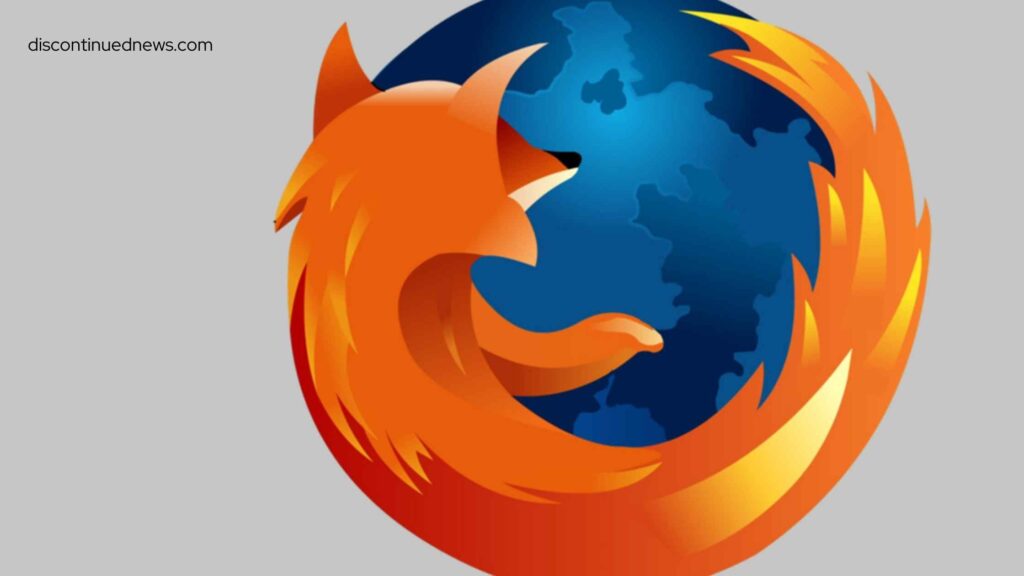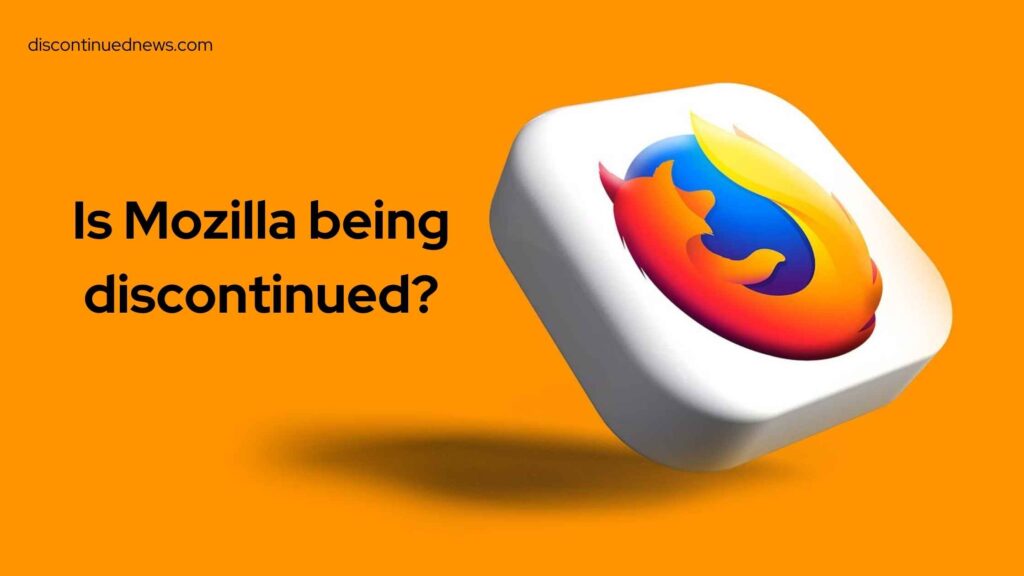Mozilla, the group behind the Firefox browser, recently announced layoffs, reshaping its strategy. This move raises questions about the future direction of the popular browser and Mozilla’s commitment to innovation. About 60 people will be affected by this layoff round. Let’s put light on what Mozilla is planning to change! or is mozilla layoffs
Mozilla plans to spend less money on things like its VPN, Relay, and Online Footprint Scrubber. Also, they’re closing down Hubs, a 3D world they made in 2018, and putting less money into Mozilla—social Mastodon. Let’s delve into the details of the layoffs and explore what lies ahead for Mozilla in the tech world.
DiscontinuedNews is impartial and independent, and every day, we create distinctive, world-class programs, news, and content that inform, educate and entertain millions of people worldwide.
Why Is Mozilla Laying Off Employees?
Mozilla tried some new things lately, but not everyone liked them, and Firefox lost users. Even though layoffs aren’t fun, Mozilla’s leaders thought they had to do it for the group to keep going. Most of Mozilla’s money came from Firefox, which made them too dependent on Google. Now, they might be going back to Firefox more. So, Mozilla is changing its focus, putting more effort into Firefox and AI, and ensuring they stay firm. This might make the big fans of Firefox pretty happy.

What Mozilla Changed?
- Mozilla. Social: They tried to make a better social media thing with Mozilla. Social, but it didn’t work out. They’re going to do smaller tests instead.
- Protection Experimentation & Identity (PXI): They’re cutting back on security and privacy products like VPN, Relay, and Online Footprint Scrubber because there are too many similar products. They’ll still invest in things people need.
- Hubs: Few people want 3D virtual worlds now, so they will stop offering Hubs. They’ll help their users move to something else.
- People Team: With few members and less money, they combine some roles to support their products better.
- Bringing Trustworthy AI into Firefox: They will use AI to improve Firefox. They’re also bringing together teams working on Pocket, Content, and AI/ML to help with this—no changes in other areas like MDN, Ads, or Fakespot.
About Mozilla
The Mozilla Corporation is a part of the Mozilla Foundation. It manages the development of Internet-related apps like the Firefox browser. People worldwide, including those employed by the corporation, work together on these projects. The corporation also spreads the word and supports these products. While the Mozilla Foundation is about helping, the Mozilla Corporation is here to make money. However, it reinvests all its profits into the Mozilla projects.
The goal of the Mozilla Corporation is to support the Mozilla Foundation’s mission of “promoting choice and innovation on the Internet.”
The History Of Mozilla
The Mozilla Corporation was set up on August 3, 2005, to handle the financial side of the Mozilla Foundation. The Foundation has rules on how much money it can have since it’s a non-profit. But the Mozilla Corporation, a money-making organization, doesn’t have such strict rules. When it started, the Mozilla Corporation took over some tasks from the Mozilla Foundation, like coordinating Firefox and Thunderbird development and dealing with businesses.
In 2005, when Mozilla Firefox 1.5 was released, the Mozilla Corporation’s website at mozilla.com became the new online home for Firefox and Thunderbird.
In 2006, the Mozilla Corporation made $66.8 million in revenue and spent $19.8 million. Most of its money (85%) came from Google, which paid to be the default search engine in Firefox.
Mozilla Taiwan, a corporation branch promoting Mozilla products in Taiwan, started in October 2011. Unfortunately, it stopped working on August 11, 2020, due to a significant restructuring of its parent company.
Recent Tech Industry Layoffs: Who’s Affected in February 2024?
According to Layoffs. FYI, the total number of layoffs in 2023 was 262,735. That’s 59% more than in 2022. Even though 2024 is just starting, job cuts are already happening.
February 2024:
- Instacart: About 250 people are laid off due to a company restructuring.
- Grammarly: 230 employees worldwide are being laid off to focus on AI-enabled workplaces.
- Getaround: The company is laying off 30% of its North American workforce as part of a restructuring.
- Amazon: Jobs are being cut in healthcare businesses, such as One Medical and Amazon Pharmacy, but the exact number has yet to be discovered.
- DocuSign: Planning to lay off 6% of its workforce, mainly in sales and marketing.
- Snap: The company is laying off 10% of its workforce, impacting around 500 employees, to “reduce hierarchy.”
- Polygon Labs: Laid off 60 employees, about 19% of its staff.
- Okta: Approximately 400 employees are being laid off, about a year after the company cut about 300 jobs.
How did Mozilla’s Finances change Over the Years?
In March 2006, people heard a rumour that Mozilla Corporation made $72 million. It was because Google was the default search engine in Firefox. However, it was later clarified that the actual amount was low.
Two years later, Google paid around $57 million to Mozilla for keeping Google as the default search engine in Firefox. This deal was extended a few times, and the partnership restarted in 2017 after a break.
In 2014, Mozilla faced criticism for appointing Brendan Eich as CEO due to a past donation supporting a law against same-sex marriage. Eich later stepped down. Chris Beard became the CEO, and Mozilla acquired Pocket, a bookmark manager.
In 2017, Mozilla dissolved its IoT initiative and focused on emerging technologies like AR, VR, and Servo/Rust.
2019, Chris Beard announced he would step down as CEO and Mitchell Baker took over.
In 2020, Mozilla laid off employees and restructured its operations. The Google search deal was extended until 2023. In December 2020, Mozilla closed its headquarters due to the pandemic.
In 2023, Mozilla acquired Fakespot, a startup identifying fake product reviews. On February 8, 2024, Mitchell Baker stepped down as CEO, and Laura Chambers became interim CEO.
Is Mozilla Safer Than Google?
Mozilla Firefox and Google Chrome are good at keeping you safe online, but they do things differently. Let’s take a look at which is better!
Mozilla Firefox:
Mozilla Firefox cares a lot about keeping your information private and safe. It works hard to stop websites from tracking what you do online. Plus, it’s built by a big group of people who help improve it.
You can change many things in Firefox to make it just how you like it.
Overall, Firefox is a good choice if you want to be sure your info stays safe.
Google Chrome:
Chrome also tries to keep you safe, but it does some things differently. It’s swift and has many extra things you can add to make it even better.
One thing to remember is that Chrome collects more of your data to give you personalized results.
Regarding privacy, Firefox is better at keeping your stuff private without needing you to do a lot of extra work.
So, if you want a browser that’s all about privacy and making it your own, Firefox is a great pick. But if speed and lots of extras are more important to you, Chrome is still a good option.
Remember that no browser can guarantee you’ll always be 100% safe online. Using other tools like antivirus software and a VPN is always a good idea.
Future Outlook For Mozilla
Mozilla’s future looks interesting with new ideas, challenges, and teamwork. Let’s see what’s coming:
- Web Compatibility and Standards: Mozilla supports open web standards. They want websites to work well on all browsers and plan to work with others to improve the web.
- Privacy and Security: Their main browser, Firefox, always cares about your privacy. They will keep improving it, ensuring your data is safe from tracking and other risks.
- WebAssembly and Performance: WebAssembly (Wasm) helps run cool things in your browser. Mozilla will make it faster and use it for more applications and games online.
- Rust Language Adoption: They made an excellent programming language called Rust. It’s safe and fast. They will use it more and tell others to use it, too.
- Community-Driven Development: Mozilla loves when people help and share ideas. Projects like Firefox and Rust will keep growing with everyone’s help.
- Challenges Ahead: Mozilla has some harsh things to deal with, like competition and money. They need to stay calm and make good choices to keep important.
In short, Mozilla wants the internet to be open, safe, and fun. They know it’s difficult, but they are ready for the challenge.
The Bottom Line
In summary, Mozilla recently changed its operations by laying off its employees. This decision shows that Mozilla wants to go back to its original plans. While some might worry about this choice, Mozilla is working to become more efficient and focus on what it does best. By making these adjustments, Mozilla can better adjust to the changing world of technology, ensuring it can last for a long time. Despite challenges, Mozilla is still committed to its web browser, Firefox, caring about user privacy and supporting a lively community. These changes help Mozilla get ready for new ideas and better serve the people who use its products.
In the future, being open about what they do and working together will be crucial for Mozilla to become even stronger in the competitive tech world. The journey ahead includes facing challenges, staying important, and standing up for what makes Mozilla unique online.
